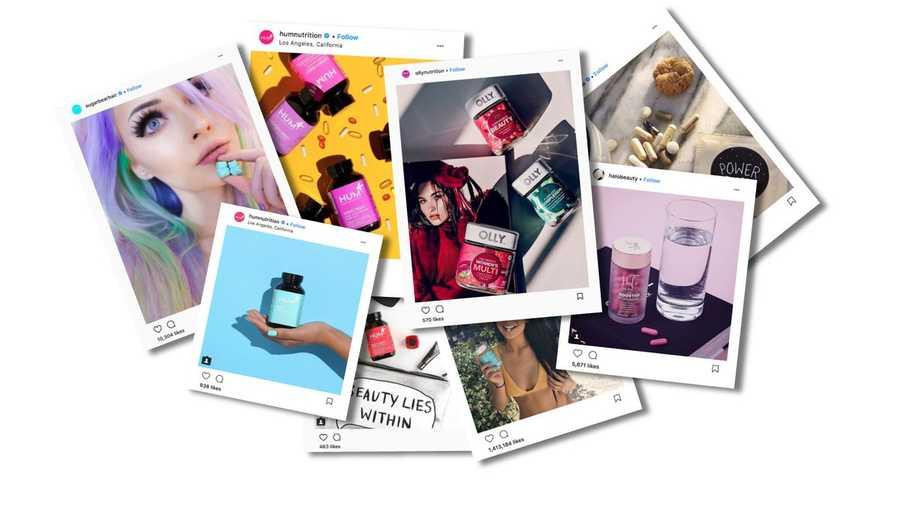Explore the World's Best Ideas
Join today and uncover 100+ curated journeys from 50+ topics. Unlock access to our mobile app with extensive features.
An old concept
Beauty supplements aren’t a new concept. We've been able to buy hair and nail formulas for decades at the drugstore.
The supplements, from vitamin ingredients like biotin, zinc, folic acid, vitamin C, to botanicals like oils, saw palmetto, ashwagandha, green tea, and turmeric, have different formulas that claim they will make you look better or younger.
63
637 reads
The beauty supplement market
Although beauty supplements were a small part of the beauty industry previously, they are now becoming increasingly popular. The global beauty supplement market is growing rapidly and is expected to reach $6.8 billion by the end of 2024.
A survey of buyers revealed that supplement brands, not skin care or makeup brands, are most likely to be picked up by retailers, as
beauty supplements have become hope in a bottle.
52
282 reads
Marketing supplements
The concept may not be new, but the techniques used to market supplements are.
In 2013, companies realized they could make use of social media to promote their supplements as youthful and fun.
One of the attractive qualities for supplements is a strong engagement on social media, with packaging designed to be super-shareable.
67
537 reads
Using beauty personalities
Supplement brands are making their products look very pleasing on social media. Then they use influencers to spread the message further.
The ultimate sign that brands have found mainstream acceptance is the now-familiar Instagram shelfies, where people post pictures of their well-displayed medicine cabinets.
49
314 reads
The science of beauty supplements
The claims these supplements make are still doubtful. Many products have little or no data to support their claims substantively.
- Biotin will not aid in hair growth unless you're deficient in the nutrient, which is rare.
- Collagen supplements probably won't keep your skin looking youthful.
- Turmeric, a food ingredient promoted for its anti-inflammatory effect, was dismissed as insignificant by many scientists.
- The data on probiotics, apparently showing promise for atopic dermatitis, is not conclusive.
63
339 reads
Safety and efficacy
The safety, efficacy, and contents of supplements cannot be trusted.
- An independent lab that analyzed beauty supplements found small quantities of lead in it. Lead is a heavy metal that's a neurotoxin in children.
- High doses of biotin can produce false lab results, increasing the chance of missed diagnosis and treatment.
- Ashwagandha has a variety of side effects, including miscarriage.
- Too much Vitamin A and E can cause hair loss.
53
256 reads
FDA regulations
The FDA does not regulate supplements. They are barely subjected to government scrutiny due to a law passed in the 1990s. The claims that include vague words like "promotes", "maintains" and "supports" are legal as long as manufacturers attach a disclaimer that reads: “These statements have not been evaluated by the Food and Drug Administration. Our product is not intended to diagnose, treat, cure or prevent any disease.”
However, target consumers are starting to become educated and care enough to call the beauty industry out on their wild claims.
46
242 reads
IDEAS CURATED BY
Sarah 's ideas are part of this journey:
Learn more about health with this collection
Conflict resolution
Motivating and inspiring others
Delegation
Related collections
Similar ideas
16 ideas
8 Anti-Aging Vitamins and Nutrients That Actually Work, Ranked
scitechdaily.com
2 ideas
What is collagen?
livescience.com
4 ideas
Read & Learn
20x Faster
without
deepstash
with
deepstash
with
deepstash
Personalized microlearning
—
100+ Learning Journeys
—
Access to 200,000+ ideas
—
Access to the mobile app
—
Unlimited idea saving
—
—
Unlimited history
—
—
Unlimited listening to ideas
—
—
Downloading & offline access
—
—
Supercharge your mind with one idea per day
Enter your email and spend 1 minute every day to learn something new.
I agree to receive email updates


